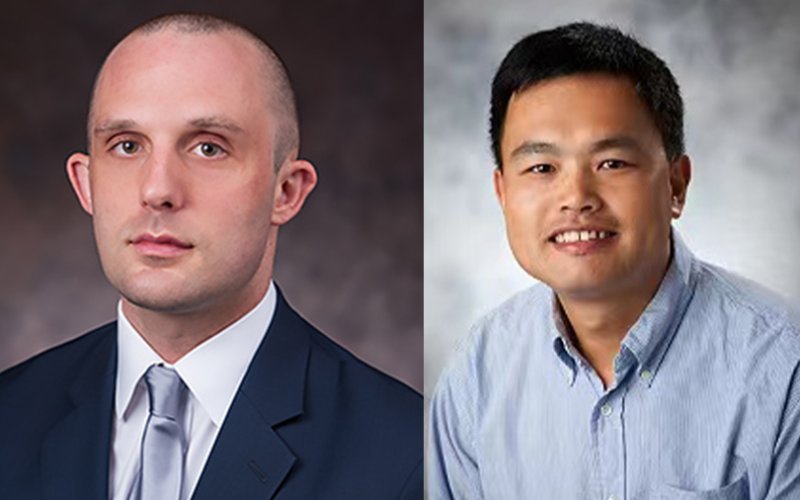College of Arts and Sciences 2022 Speaker Series, Friday March 25

Join the College of Arts and Sciences and the UAlbany Department of Political Science for the 2022 Speaker Series, Friday, March 25 at 9:30 a.m. via Zoom. The speakers will be:
- Sino-Russian Relations in Historic Context: Ideology, Agency and Interests
Dr. Joseph Torigian, School of International Service, American University
- "Big Triangle" No More? Mutual Perception and Role Expectation of China and Russia in the Shifting US-China-Russia Relations
Dr. Xin Zhang, School of Politics and International Relations, Center for Russian Studies, East China Normal University
Join on Zoom
(Meeting ID: 978 7411 9811, Passcode: 293972)
Joseph Torigian
Joseph Torigian is an assistant professor at the School of International Service at American University in Washington and a Global Fellow at the Wilson Center. Previously, he was a Stanton Nuclear Security Fellow at the Council on Foreign Relations, Postdoctoral Fellow at Princeton-Harvard’s China and the World Program, a Postdoctoral (and Predoctoral) Fellow at Stanford’s Center for International Security and Cooperation (CISAC), a Predoctoral Fellow at George Washington University’s Institute for Security and Conflict Studies, an IREX scholar affiliated with the Higher School of Economics in Moscow, and a Fulbright Scholar at Fudan University in Shanghai. He studies elite politics and foreign relations in China and Russia. His Yale University Press book “Prestige, Manipulation, and Coercion: Elite Power Struggles in the Soviet Union and China after Stalin and Mao” will be released in May 2022.
Sino-Russian Relations in Historic Context: Ideology, Agency, and Interests
Sino-Russian relations have always had a deep impact on both countries, and the rise and fall of their alliance during the Cold War even significantly shaped the history of Xi’s own family. In this talk, Professor Joseph Torigian will compare that earlier era of the relationship to the present day across three issue areas. First, although the two countries are no longer tied by Marxist ideology, they share a distaste for western democracy and a hope that the world will become safer for authoritarian regimes. Second, during the Cold War, China’s use of force often led to tensions with the USSR – now, it is Russia’s aggressive behavior that stresses the relationship. Third, the Putin-Xi friendship is an anomaly in the history of the relationship, as previous leaders often mistrusted or disrespected one another. An appreciation for these differences suggests that although the relationship is not as close as it was at the height of the Sino-Soviet alliance and that neither side will fully sacrifice its interests for the other, in some ways the relationship today is better capable of managing centrifugal forces.
Xin Zhang
Dr. Xin Zhang is an Associate Professor at the School of Politics and International Relations, and Deputy Director of Center for Russian Studies, East China Normal University in Shanghai. His research interests cover comparative political economy, political sociology and critical geopolitics, with a regional focus on Russia and Eurasia. He holds a PhD in political science from UCLA and has taught at Reed College, Fudan University, and Higher School of Economics. His academic and policy researches appear in multiple languages in Review of International Political Economy, Geopolitics, Osteuropa, China Journal, Russia in Global Affairs etc.
“Big triangle” no more? Mutual perception and role expectation of China and Russia in the shifting US-China-Russia relations
This talk looks at how mutual perception and role expectation evolve over time between China and Russia on each other’s position in international system and bilateral relations in the context of shifting perception of the “big triangle” between the US, Russia and China since the early 2000s. We use official texts, expert opinions during a series of key policy episodes (Crimea, the Olympics, trade war, war in Ukraine) to demonstrate how this constant role adjustment has evolved from a more conservative “do-no-harm” policy in the 1990s to the “no-limits” identification in the 2020s.


